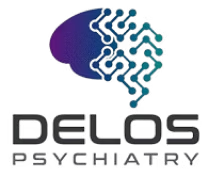Transcranial Magnetic Stimulation (TMS) therapy has emerged as a groundbreaking treatment for depression and other mental health disorders, offering a non-invasive alternative to traditional therapies. As technology advances, the future of TMS therapy is becoming increasingly promising, with innovations that enhance treatment efficacy and patient comfort.
Advancements in TMS Devices
One of the most significant developments in TMS technology is the introduction of newer, more precise devices. These advanced TMS machines are equipped with sophisticated software that allows for real-time monitoring of brain activity during treatment. This capability enables clinicians to adjust treatment parameters on-the-fly, ensuring that magnetic pulses are delivered accurately to targeted areas of the brain. Such precision not only improves the effectiveness of the therapy but also minimizes potential side effects, making the treatment safer and more comfortable for patients.
Moreover, the emergence of deep TMS (dTMS) represents a major leap forward. Unlike traditional TMS, which primarily stimulates superficial brain regions, dTMS utilizes a stronger magnetic field to penetrate deeper into the brain. This allows for the stimulation of areas previously inaccessible to conventional methods, potentially enhancing therapeutic outcomes for patients with more complex or resistant forms of depression.
Innovative Techniques: The SAINT Protocol
The Stanford Accelerated Intelligent Neuromodulation Therapy (SAINT) is another groundbreaking advancement in TMS therapy. This protocol offers a more intensive treatment regimen, allowing patients to receive multiple sessions in a shorter time frame. Early results indicate that SAINT can lead to faster and more significant improvements in symptoms, particularly for those who have not responded well to traditional treatments. This method represents a shift towards personalized care, where treatment plans can be tailored to individual patient needs and responses.
Integration of AI and Neural Navigation
Artificial intelligence (AI) is playing an increasingly vital role in enhancing TMS therapy. By analyzing patient data, AI can help create personalized treatment plans that consider individual brain structures and functional areas. This integration not only optimizes treatment efficacy but also aligns with the growing trend towards precision medicine in mental health care.
Additionally, advancements in neural navigation systems have revolutionized how TMS is administered. These systems enhance the accuracy of targeting specific brain regions by providing detailed maps of brain activity. This increased precision ensures that treatments are both effective and tailored to each patient’s unique neurological profile.
Expanding Applications beyond Depression
While TMS has primarily been recognized for its effectiveness in treating depression, ongoing research is exploring its applications for various mental health conditions and neurological disorders. Studies are currently investigating its efficacy in treating anxiety disorders, PTSD, chronic pain, and even neurodegenerative diseases like Alzheimer’s. This expansion signifies a broader recognition of TMS as a versatile tool in mental health treatment.
Conclusion
The future of TMS therapy is bright, characterized by rapid advancements that promise to enhance both efficacy and patient comfort. With innovations such as personalized treatment protocols, AI integration, and improved device technology, TMS is poised to play a crucial role in the evolving landscape of mental health care. As research continues to unfold and new applications are discovered, TMS may become an even more integral part of comprehensive treatment strategies for various mental health challenges. The ongoing commitment to improving TMS technology reflects a hopeful trajectory towards more effective and accessible mental health treatments for all patients.


